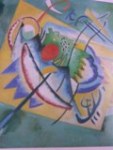|
Poslao: 07 Okt 2007 21:25
|
offline
- kindergirl

- Počasni građanin

- Pridružio: 02 Mar 2005
- Poruke: 901
|
Citat:READ AND WEEP
"Be careful what you write - it will come true!", wrote Tsvetayeva.
One verse: "Everybody will write poetry". written by Branko Miljkovic came true. Today in Serbia almost everybody who does not confuse Cyrillic with Latin alphabet writes poetry. But something else came true as well: nobody or virtually nobody reads poetry any more. That is the law which applies to readers worldwide i.e. to almost all literate persons. In America and Europe alike, collections of poems are the cheapest volumes in bookstores and they appear in editions of smallest quantities. Usually, they are never sold out, not even at literary sales. This civilization no longer has enough time, concentration or desire to read verses.
We have become so boring and prosaic (I almost said prose-like). Here, people start writing poetry early in life, when they are around thirteen. A friend of mine, rather inventively described this kind of poetry as "hormonal". By the time we reach our late thirties and hormones get soaked in stew, somehow poetry becomes more and more distant, because we grow more estranged from ourselves. The first signal indicating that you have given up on your life can be seen at the moment when you stop reading your favourite poets. That means that your heart considerably hardened and your soul flew away from you. Maybe you are already pretty dead, but there is nothing to be worried about, the majority of mankind lives like that: "Welcome to the club!". If we agree with Brodsky that, in fact, civilizations have their foundations in language, it is clear that poetical writings are the most sublime creations human mind can conceive.
Somewhere in the heights (where Rilke's "Duino Elegies" reside) or in the depths (where the volcano of Marina Tsvetayeva's "The Poem of the End" rages) language meets music and unites with it, reminding us of Edenic times when language and music were one. At the book fair that has recently been held in Belgrade, one collection of poems unmistakeably captured the attention of all poetry lovers. That was the collection entitled "Always Fragment", written by Polish poet Tadeus Rósewicz who is this year's laureate of the well-known poetry prize (awarded by the Vrsac Literary Society). It is no wonder at all that he won the prize; Rósewicz is, above all, an ingenious poet (for many years, he has been a candidate for the Nobel prize and he probably will not get it since Wislava Szymborska won that honour a couple of years ago). But, Rósewicz is also a poet of despair, depression, war traumas, a man who has never recovered from cruel, inhuman and crude experiences of war.
The truth is that a man cannot recover from such an experience. All he can do is adapt it somehow, by talking, writing about it (which is more like a super adaptation) or by reading verses. Prose appeals mostly to reason; poetry, on the other hand, flows from one soul into another - drop by drop. Because it is regarded as infusion "the best love poetry was written postcoitally", Brodsky once wrote. Cavafy wrote sublime and sophisticated verses about love, history and the crumbling civilization. Pasternak was in love with chlorophyllose breath of nature; remember the beautiful and comforting verse "Life, my sister…" A whole new continent waits for you in the collections of poems of Tsvetayeva and Mandelstam. The brilliant Romanian surrealists Ion Caraion, Djelu Naum, Djorde Bakovia… are yet to amaze the world. But you have to plunge alone into discovering poetry, because everyone must save his own life alone.
Sanja Domazet
http://www.cyberrex.org/izdavastvo2-eng.html
trazhish nechiji citat a naidjesh na ovo gore postovano i to na engleskom :lol:...
namerno sam stavila ovakav naslov iako je mozhda vishe primeren neki suptilniji... ali ... (uvek to ali   )makes me wonder... da li je u pravu? nazhalost ja mislim da jeste... ipak ne mislim da je to (samo)posledica vremena u kome zhivimo... ipak... nisam sad imala na umu da otvaram nikakvu raspravu...samo da podelim tekst sa vama. )makes me wonder... da li je u pravu? nazhalost ja mislim da jeste... ipak ne mislim da je to (samo)posledica vremena u kome zhivimo... ipak... nisam sad imala na umu da otvaram nikakvu raspravu...samo da podelim tekst sa vama. 
|
|
|
|
|
Registruj se da bi učestvovao u diskusiji. Registrovanim korisnicima se NE prikazuju reklame unutar poruka.
|
|
|
Poslao: 07 Okt 2007 23:24
|
offline
- Black Orchid
- Na pola puta...

- Pridružio: 22 Nov 2003
- Poruke: 1978
- Gde živiš: na preseku Vremena i Vechnosti
|
1) shta ti govori ovaj kutak 'Poezija'?  o mnogim drugim i on- i offline i da ne pricham o mnogim drugim i on- i offline i da ne pricham 
2) "Prose appeals mostly to reason; poetry, on the other hand ..." sooooo NOT true. imho.  (ili mozhda eventualno zavisi od toga shta chitash... i kako chitash... ima i proze sa dushom i za dushu i poezije za um, a pri chitanju treba 'ukljuchiti' oboje... rekli vec i neki drugi pre mene, chak (ili mozhda eventualno zavisi od toga shta chitash... i kako chitash... ima i proze sa dushom i za dushu i poezije za um, a pri chitanju treba 'ukljuchiti' oboje... rekli vec i neki drugi pre mene, chak  ) )
3) "Be careful what you write - it will come true!" - Then why does the author write such things?  
4) mozhda jedina stvar koju smatram "na mestu" u ovom tekstu je ".. The truth is that a man cannot recover from such an experience. All he can do is adapt it somehow," pri chemu se sa nastavkom, tj. sa pretpostavljenim "reshenjem" ne bih slozhila, bar ne kao univerzalnim. necu recci da su drugi neki nachini "pravi"/"bolji"/"delotvorniji", ali svakako su za razne ljude razlichiti, pa tako za nekog drugog - neki drugi 'pravi'&'bolji'...
5) @ kinder - nemoj me pogreshno shvatiti, hvala na deljenju  jednostavno, moje mishljenje, iskustvo i dozhivljaj stvari... a, znash, ima tekstova koje kad prochitash, mislish neshto si prochitao... well, veliko je pitanje shta. (nishta od ovoga nije 'na rachun' autorke, naravno, samo tekst uzimam pod lupu) e sad... zashto je ona ovo napisala, "tko bi ga znao". o sebi, o svom krugu poznanika, o odredjenim pojavama ili slojevima, pa globalizuje i fatalishe ... ? jednostavno, moje mishljenje, iskustvo i dozhivljaj stvari... a, znash, ima tekstova koje kad prochitash, mislish neshto si prochitao... well, veliko je pitanje shta. (nishta od ovoga nije 'na rachun' autorke, naravno, samo tekst uzimam pod lupu) e sad... zashto je ona ovo napisala, "tko bi ga znao". o sebi, o svom krugu poznanika, o odredjenim pojavama ili slojevima, pa globalizuje i fatalishe ... ?  don't know. but I do know that people still read poetry. worldwide. don't know. but I do know that people still read poetry. worldwide.
(some of them even on a daily basis)
|
|
|
|
|
|
|
Poslao: 14 Okt 2007 04:25
|
offline

- Pridružio: 17 Jul 2005
- Poruke: 3097
- Gde živiš: "Daleko od Negdje"
|
"Poezija lijeci rane sto ih zadaje razum." - Novalis
|
|
|
|
|
|
|
Poslao: 03 Maj 2008 01:28
|
offline
- Black Orchid
- Na pola puta...

- Pridružio: 22 Nov 2003
- Poruke: 1978
- Gde živiš: na preseku Vremena i Vechnosti
|
"Pravo, temeljno chitanje knjizhevnog dela nije ni samo uzbudljivo uzhivanje niti samo hladno intelektualno razumevanje, nego oboje; jer umetnichko i knjizhevno delo utiche, kako na chuvstva, tako i na misli svakog chitaoca. Ono deluje na choveka u celini."
(Dragoljub Nedeljkovic)
ovo ti je sigurno poznato 
|
|
|
|
|
|
|
Poslao: 15 Maj 2008 14:43
|
offline

- Pridružio: 13 Sep 2007
- Poruke: 265
- Gde živiš: navrh' trepavica
|
Kada sam bio mlad,gotovo uvek sam čitao da nešto naučim,a danas čitam da bih zaboravio.
Da bismo dobro razumeli neku značajnu knjigu,trebalo bi da je svu prepišemo.
giovanni papini
|
|
|
|
|
|
|
Poslao: 28 Maj 2008 23:47
|
offline
- ljubicasta

- Prijatelj foruma

- Pridružio: 19 Jun 2005
- Poruke: 2673
- Gde živiš: u pokretu...
|
Black Orchid ::
2) "Prose appeals mostly to reason; poetry, on the other hand ..." sooooo NOT true. imho.  (ili mozhda eventualno zavisi od toga shta chitash... i kako chitash... ima i proze sa dushom i za dushu i poezije za um, a pri chitanju treba 'ukljuchiti' oboje... rekli vec i neki drugi pre mene, chak (ili mozhda eventualno zavisi od toga shta chitash... i kako chitash... ima i proze sa dushom i za dushu i poezije za um, a pri chitanju treba 'ukljuchiti' oboje... rekli vec i neki drugi pre mene, chak  ) )
slazem se, mnogo se slazem. tesko je, ali mnogo tesko, pisati pravu, odistinsku poeziju. mahom je se late oni koje emocije preplave....ali retko kada takvi izlivi predju na 'visu' ravan pisanja poezije....
a....toliko je reka, bujica, mora, poplava emocija u prozi...da....
|
|
|
|
|
|
|
Poslao: 29 Maj 2008 22:01
|
offline

- Pridružio: 13 Sep 2007
- Poruke: 265
- Gde živiš: navrh' trepavica
|
čitanje bez razmišljanja pravi čoveka nesređenim,razmišljanje bez čitanja čini čovekov um neuravnoteženim
konfučije
|
|
|
|
|
|
|
Poslao: 30 Maj 2008 02:10
|
offline
- Black Orchid
- Na pola puta...

- Pridružio: 22 Nov 2003
- Poruke: 1978
- Gde živiš: na preseku Vremena i Vechnosti
|
"Prólogo
El ejercicio de la literatura puede enseñaros a eludir equivocaciones, no a merecer hallazgos. Nos revela nuestras imposibilidades, nuestros severos límites. Al cabo de los años, he comprendido que me está vedado ensayar la cadencia mágica, la curiosa metáfora, la interjección, la obra sabiamente gobernada o de largo aliento. Mi suerte es lo que suele denominarse poesía intelectual. La palabra es casi un oximoron; el intelecto (la vigilia) piensa por medio de abstracccioes, la poesía (el sueño), por medio de imágenes, de mitos o de fábulas. La poesía intelectual debe entretejer gratamente esos dos procesos. Así lo hace Platón en sus diálogos; así lo hace también Francis Bacon en su enumeración de los ídolos de la tribu, del mercado de la caverna y del teatro. El maestro del género es, en mi opinión, Emerson; también lo han ensayado, con diversa felicidad, Browning y Frost, Unamuno y, me aseguran, Paul Valéry. Admirable ejemplo de una poesía puramente verbal es la siguiente estrofa de Jaimes Freyre: 'Peregrina paloma imaginaria que enardeces los últimos amores; alma de luz, de música y de flores, peregrina paloma imaginara.' No quiere decir nada y a la manera de la música dice todo. Ejemplo de poesía intelectual es aquella silva de Luis de León, que Poe sabía de memoria: 'Vivir quiero conmigo, gozar quiero del bien que debo al Cielo, a solas, sin testigo, libre de amor, de celo, de odio, de esperanza, de recelo.' No hay una sola imagen. No hay una sola hermosa palabra, con la excepción dudosa de 'testigo', que no sea una abstracción. Estas páginas buscan, no sin incertidumbre, una vía media."
(Jorge Luis Borges, Prólogo para "La Cifra", Buenos Aires, 29 de abril de 1981)
|
|
|
|
|
|
|
Poslao: 30 Maj 2008 15:21
|
offline

- Pridružio: 13 Sep 2007
- Poruke: 265
- Gde živiš: navrh' trepavica
|
To Dosada je!-U oku joj se jate
Bezvoljne suze,a vešala joj na umu.
I sam,čitaoče,znaš tu nežnu čamu,
-Dvolični čitaču,-moj bližnji,-moj brate!
š.bodler
|
|
|
|
|
|

